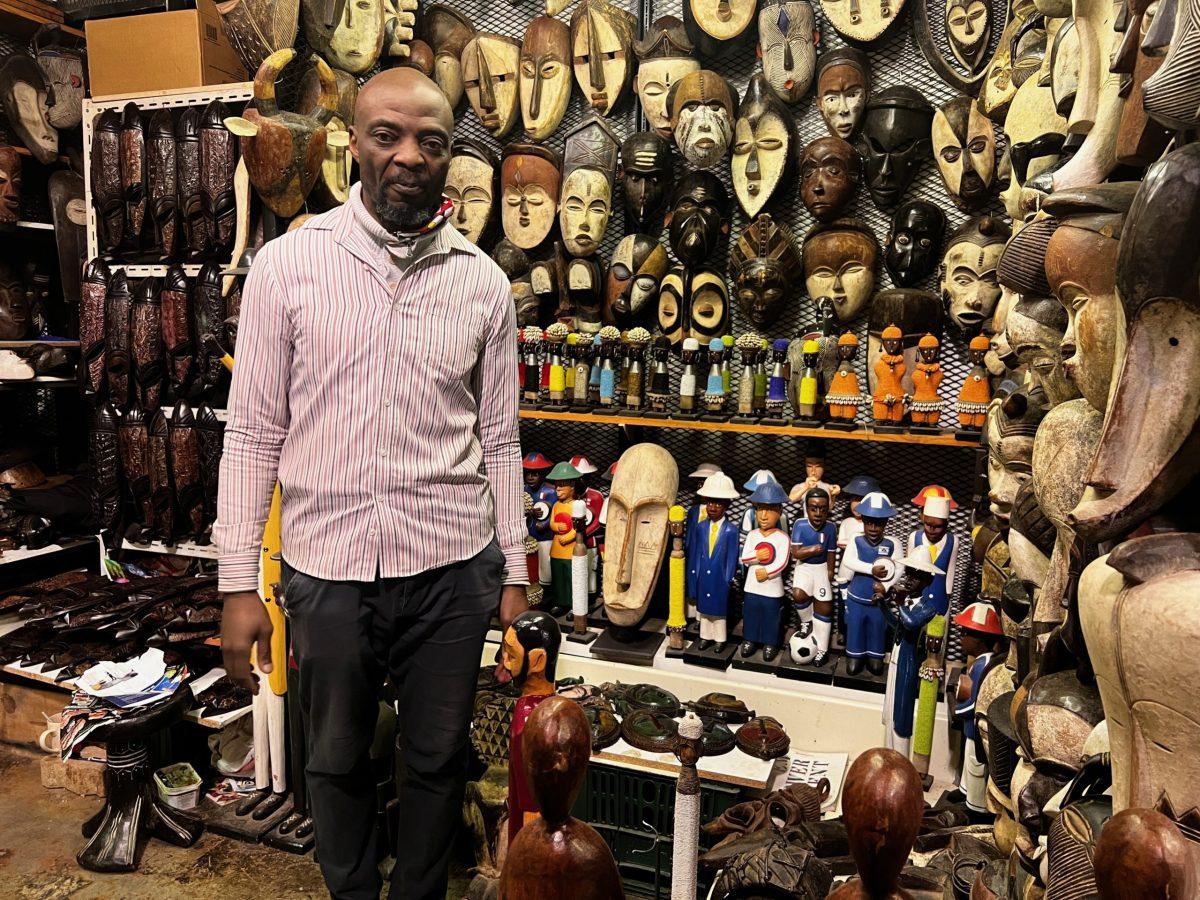Johannesburg, South Africa – Each Sunday, on the rooftop deck of a parking garage in the Rosebank Mall, over 200 traders set up tables to sell goods. After being hit hard by the COVID-19 pandemic, these traders are hoping tourists and local shoppers will continue to find their way back.
On a warm, winter Sunday in early July, the parking lot was filled with music and the eclectic smell of curries and tacos as a thin crowd wandered between stalls with colorful displays of souvenirs, clothing, jewelry and traditional African art.
The traders suffered during the early months of the pandemic. With lockdown restrictions in place, most of them had no other way to sell and were forced to wait until the market was allowed to reopen. Others were unable to come back after the lockdown ended, having had to shut down their business entirely.
“I couldn’t sell, I couldn’t do anything,” said Nkosinathi Bhoboza, a vendor in the market for the past seven years. “I would advertise but no one would buy. For me it was tough.”
Bhoboza, whose Black Star Clothing shop sells graphic T-shirts and hoodies, said his experience was similar for other traders in the market.
Leo Tafadzwa Murefu, who owns a stall that sells a large variety of ebony art pieces, said COVID “killed us” economically.
“No customers, nothing,” Murefu said. “As of right now, we are still recovering.”
A number of the vendors at the market come from neighboring countries to South Africa, which services a more centralized tourist area. Many shoppers are from elsewhere too. Although the local community supports the market, Jobe said about 90 percent of his customers are tourists.

Diminished tourism has continued to affect the traders’ bottom line, many of them said. That has been the case for Tshepo Jobe, one of the traders whose stalls occupy the packed basement space of the Rosebank Art & Craft Market, which is located under the mall. The market is filled with traders and artists selling goods from all over Africa.
Jobe, who works at the booth that his father established over 20 years ago, said he noticed the effects of border closures that continued after South Africa’s lockdown.
“Without the tourists, our business won’t actually survive,” Jobe said. “Covid really affected us a lot to a point where people really struggled.”
The contribution of tourism to the GDP in South Africa in 2020 was the lowest it had been since 2005, according to a 2022 report on Statista. The number of jobs in the same sector dropped to 32.4 percent in the same year.
Alain Bolingo has been selling traditional South African masks for almost 15 years in the market. He thinks about what visitors to the country would want to have.
“Whatever we make, we make with tourists in mind,” Bolingo said. “Because they are coming with curiosity. They want to know how we live our life and this is our way of showing our life to them.”

Tsitsi Zvanyange, owner of Batik, which sells textiles from Zimbabwe, said that business was “a little bit better” but shops are still trying to regain their footing.
The vendors still selling at Rosebank, however, are anticipating more tourists and a return to normalcy when summer arrives in December in South Africa.
“There is hope,” Jobe said. “We are are expecting to have more customers during the summer.”














































